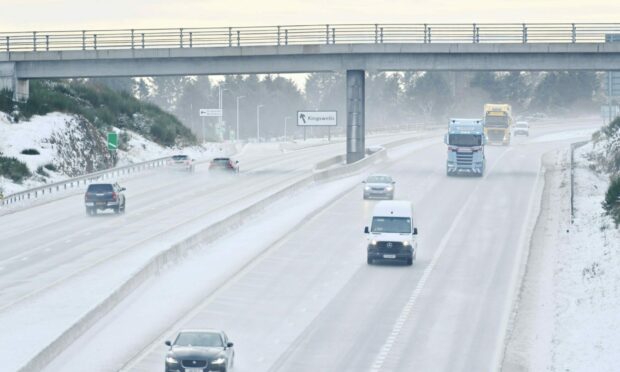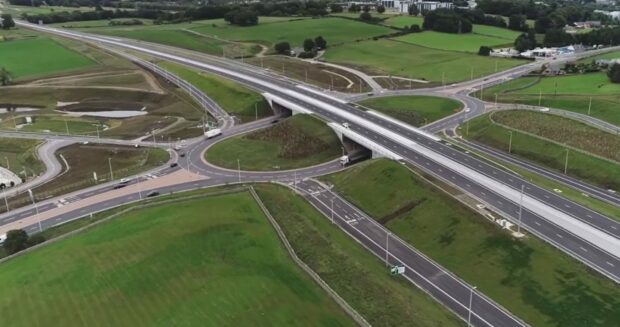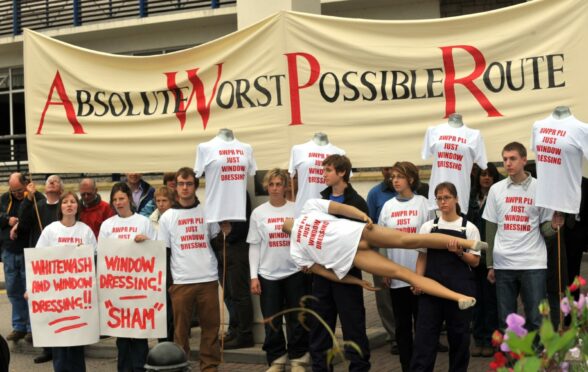Alex Salmond’s SNP government considered delaying work on Aberdeen’s long-awaited bypass within weeks of coming to power in 2007.
Newly-released Cabinet papers show the Aberdeen Western Peripheral Route (AWPR) was named on a list of potential “deprioritisation” options tabled by officials.
It was one of dozens of savings measures considered to try to balance the books and help the SNP deliver its manifesto commitments.
John Swinney, who was finance secretary at the time, discussed in one paper how the settlement the Holyrood government had received from Westminster had been the “worst since devolution”.
The 36-mile AWPR finally opened to motorists in late 2018 and early 2019, after the £745 million project was repeatedly hit by delays.
First Minister Nicola Sturgeon has hailed the “huge benefits” it has brought to the north-east since then.
Long journey
Such a bypass was first proposed to alleviate congestion in the Granite City in the 1950s, but the proposal did not move forward significantly until after devolution.
The Labour-Liberal Democrat executive approved the plans in January 2003, hoping it could be completed by 2010 at a cost of £120m.
The bill had increased to £400m by the time the SNP came to power in 2007.
The target completion date was pushed back to the end of 2012 and fears were raised about the AWPR’s future after Mr Swinney ordered a review of infrastructure projects.
Mr Salmond’s spokesman said at the time that the government was committed to the project.
But the newly-released papers show there was a proposal to halt work on the scheme in order to save cash.
By the end of 2007, the government had announced a public inquiry would need to be held the following year to consider the 8,000 objections to the bypass.
The dual carriageway was finally approved in December 2009 but a legal challenge by protesters delayed it further.
Lewis Macdonald is a former Labour MSP for Aberdeen Central and the north-east region, who served in several deputy minister posts, including transport.
He said: “This confirms the suspicion many of us had at the time that the incoming SNP government had no money to build the WPR and were keen to push the commitment to do so as far into the future as possible.
“Coming in in 2007, the SNP had four years of government in front of them without an overall majority, so they had to tread with care.
“Things they promised but could not deliver were pushed beyond 2011.”


